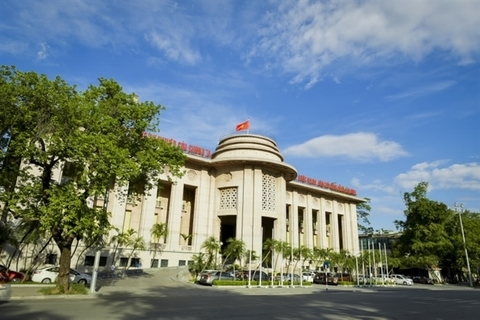Bui Quang Tin, CEO of Bizlight, lecturer at HCM City Banking University, said auditing state-owned enterprises (SOEs), including the SOEs with 100 percent or just 50-75 percent of state’s capital, is necessary.

The three zero-dong banks operate under the mode of single-member limited company in which the state is the only owner. Therefore, if referring to the laws, auditing the banks’ financial reports is legal. The agency to audit the banks could be the State Audit or independent auditors.
Zero-dong banks are weak banks which were taken over by the State Bank for zero dong and had to undergo compulsory restructuring.
| The three zero-dong banks operate under the mode of single-member limited company in which the state is the only owner. Therefore, if referring to the laws, auditing the banks’ financial reports is legal. The agency to audit the banks could be the State Audit or independent auditors. |
According to Tin, the task of auditing agencies is finding out if the figures shown in the financial reports of the three banks are transparent and the business activities are good enough to create confidence for investors.
“The answers to the questions about what the risks of zero-dong banks are and if they operate in a transparent way will be found in the conclusions by auditing agencies,” Tin said.
Emphasizing that the zero-dong banks are weak banks with many big problems, the expert said the important things after auditing are the suggestions by auditors on the way to restructure the banks.
“The restructuring process won’t be simple and it will be time consuming. This may need to replace personnel structure, upgrade technology and support the banks’ liquidity,” he said.
One of the things that need to be done in restructuring is changing the management board if it doesn’t work well. The State Bank has done this many times when sending good managers from Vietcombank, BIDV and VietinBank to the zero-dong banks.
A banking expert said the settlement of bad debts of the banks has relations with different procedures and the checking of bad debts. Every bank may need specific solution to deal with the bad debts, depending on the characteristics of the debts.
He went on to say that there are many bottlenecks during restructuring, from personnel quality to technology; therefore, the restructuring process will take time.
Dinh Trong Thinh from the Finance Academy shared the same concern about the restructuring of the zero-dong banks, saying that the State Bank seems to go slowly in dealing with the banks.
Agreeing that it is necessary to audit banks, Thinh said restructuring the zero-dong banks will be a difficult question.
The expert expressed his concern even when the State Bank said many foreign investors are negotiating to buy the weak banks.
“Even the valuation of the banks is a difficult question,” he commented.
Mai Lan

VN Central Bank tightens regulations with bad loans on the rise
The State Bank of Vietnam (SBV) has taken steps to tighten regulations over banks’ use of short-term deposits, reducing its ratio used to finance medium and long term loans from 60 per cent now to 40 per cent by September next year.
ban

Profit of VN banks soar again
Reporting high profits, Vietnamese commercial banks have once again lifted concerns about profit growth limits.
 Contributing their ideas to the 2020 auditing plan, National Assembly deputies said it is necessary to audit the three zero-dong banks to discover their real financial situation.
Contributing their ideas to the 2020 auditing plan, National Assembly deputies said it is necessary to audit the three zero-dong banks to discover their real financial situation.